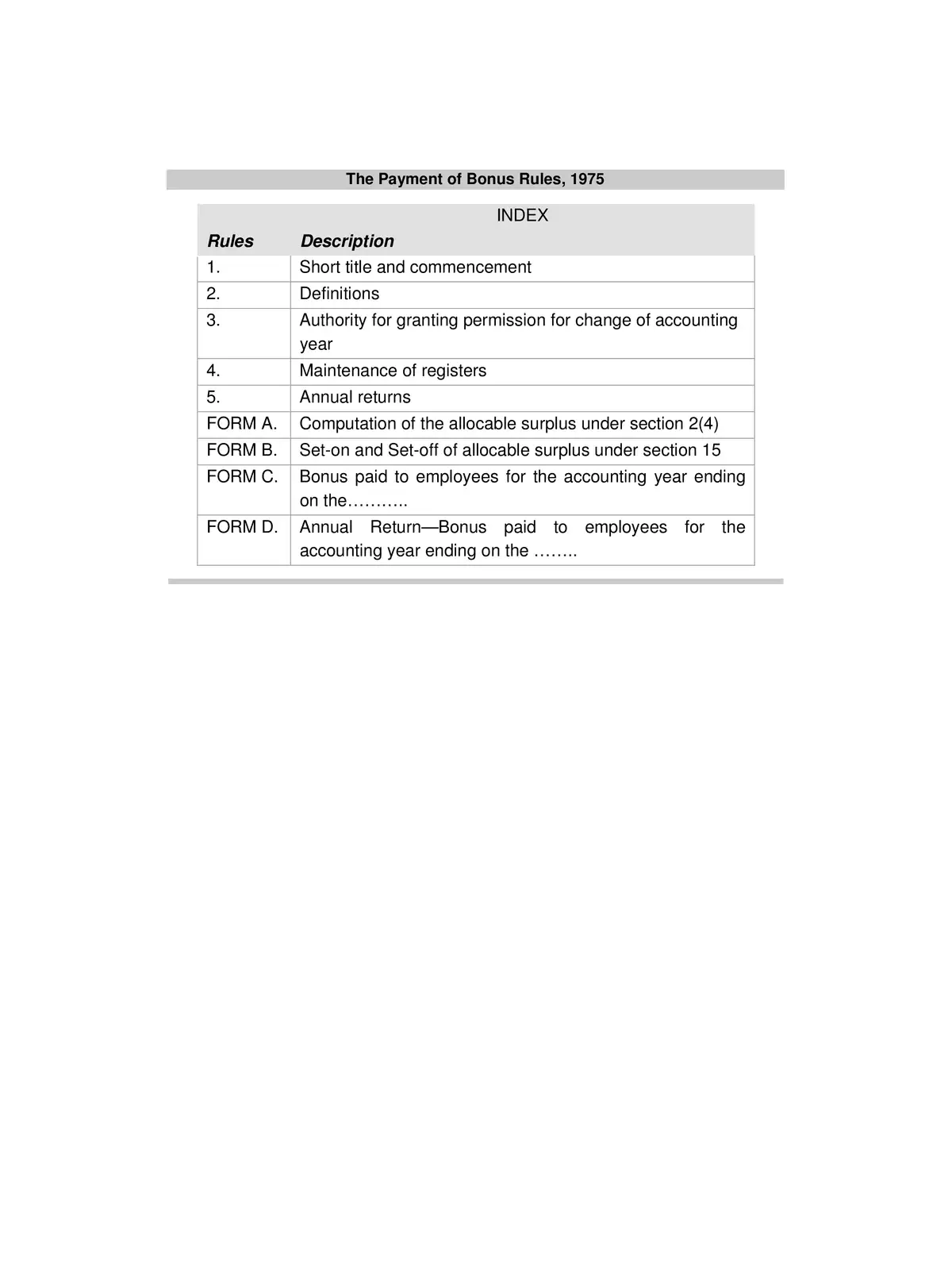Payment of Bonus Act,1965 - Summary
The Payment of Bonus Act, 1965 is an essential law in India that ensures employees receive bonuses based on the profits or production of their workplaces. This Act was introduced to guarantee fair bonus payments, promoting motivation and rewarding hardworking Indian workers. If you want to understand how this Act affects you, read on for more details! You can also download the PDF that explains everything in depth.
Understanding Eligibility Under the Payment of Bonus Act
Every employee who has worked in a company for at least thirty working days during a financial year is entitled to receive a bonus under this Act. This provision ensures that dedicated employees are recognized for their efforts.
Disqualification Under the Payment of Bonus Act, 1965
- If an employee has been dismissed from the company,
- he/she will not be eligible for a bonus.
- Specific reasons for dismissal include:
- Fraud,
- Riotous or violent behavior on the premises,
- Theft,
- Misappropriation,
- Damage to the company’s property.
Ceiling on Salary or Wages
When calculating bonuses, if an employee’s salary or wages exceed Rs. 7,000 per month or the Minimum Wages (whichever is higher), then Rs. 7,000 or the Minimum Wages will be considered as the maximum limit for the bonus calculation.
To learn more about the Payment of Bonus Act, 1965, you can download the PDF document using the link below. This PDF provides further insights into your rights and benefits under this important legislation. 📄
